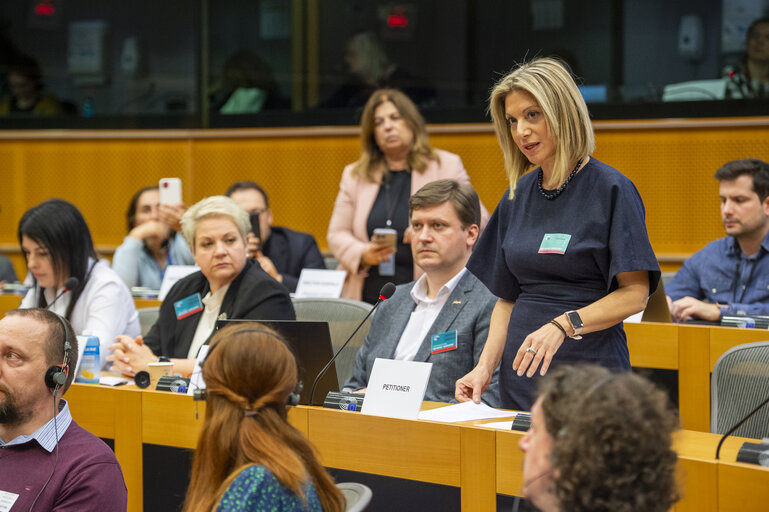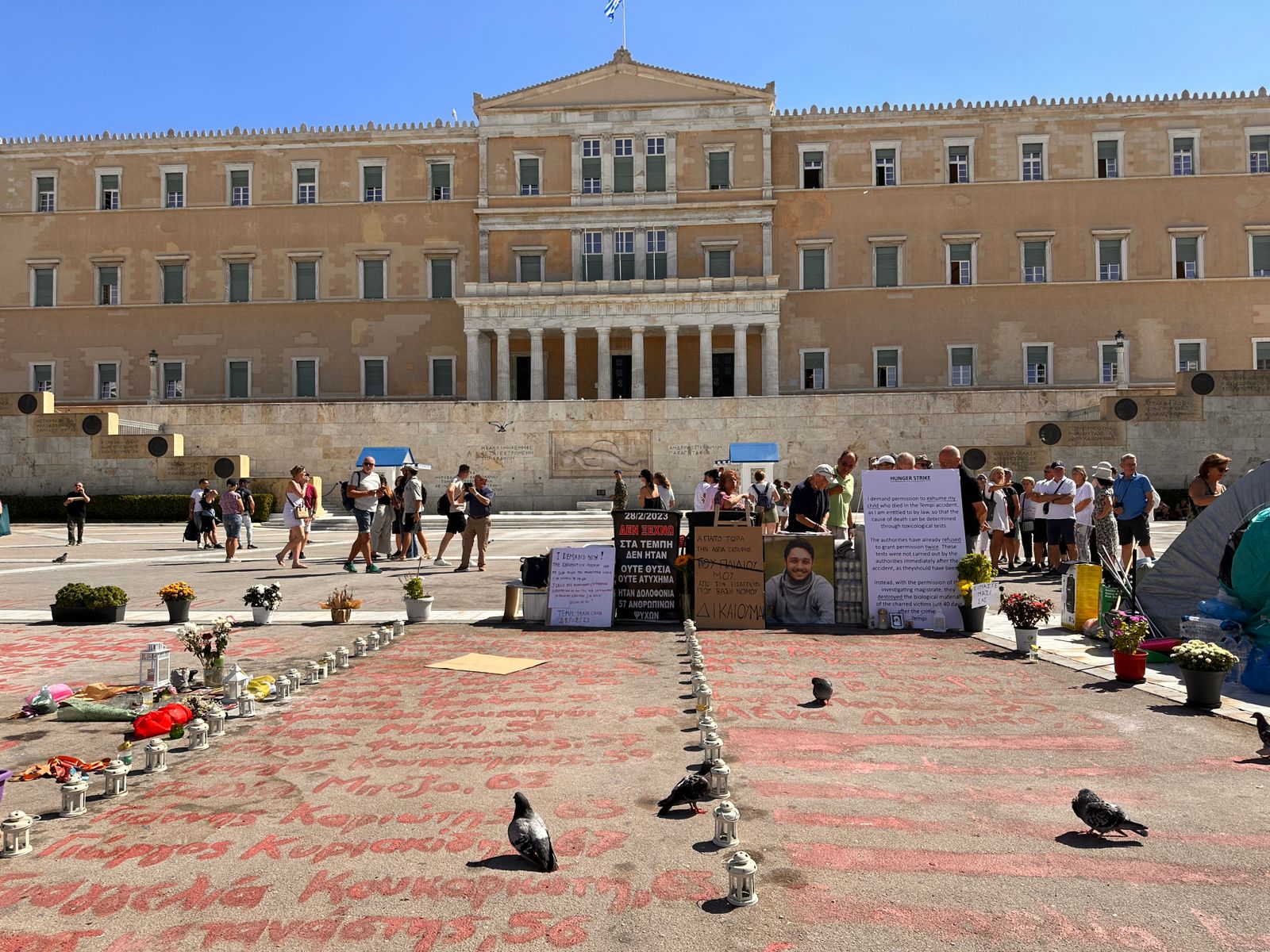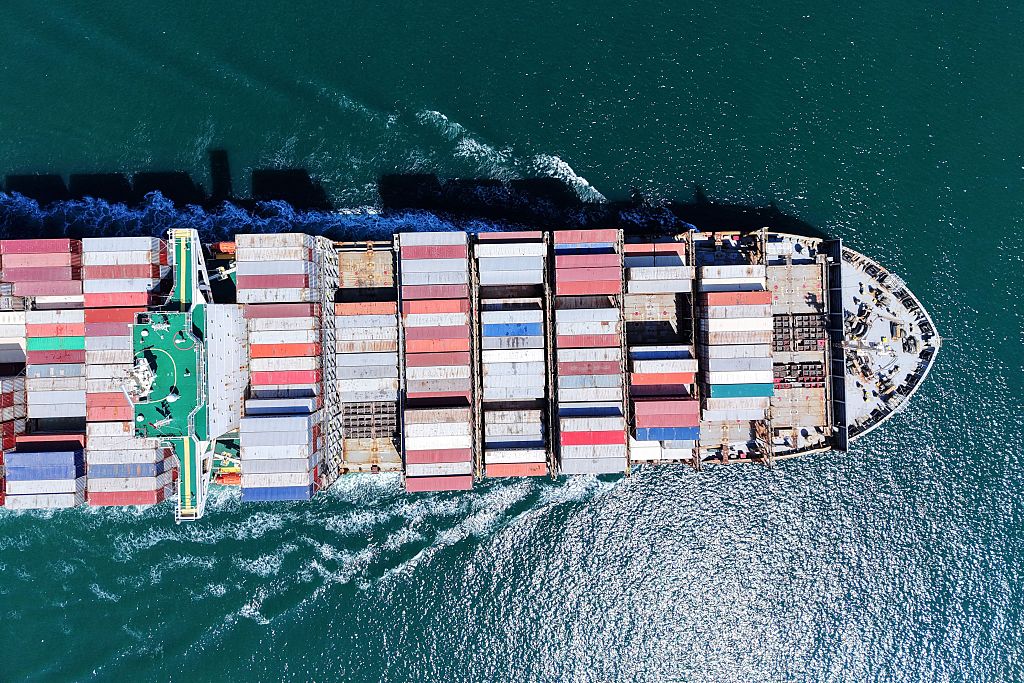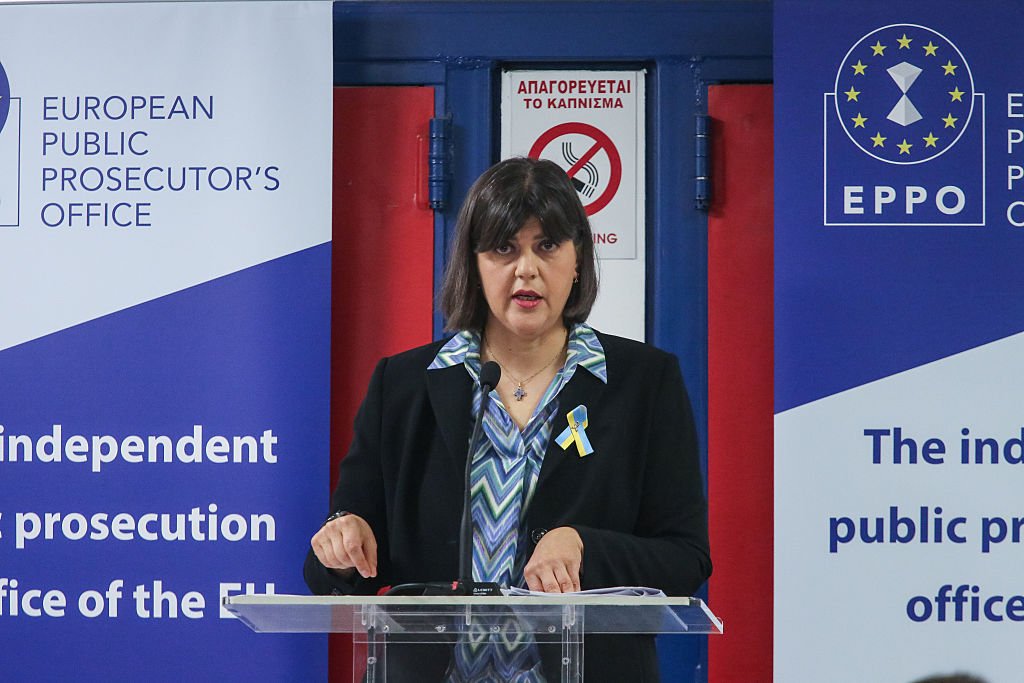Parents of train crash victims turn to EU after Greek courts block exhumations
Source: Euractiv
ATHENS – Pressure is mounting on Greek authorities to allow the exhumation of dozens of young victims of a 2023 train crash, as parents accuse the justice system and government of covering up the true cause of the tragedy.
On 28 February 2023, a freight train and a passenger train collided head‑on on the main Athens-Thessaloniki line near Tempi in central Greece. The accident killed 57 people and injured dozens more.
For over two years, relatives have demanded answers about the explosion triggered by the crash, suspecting the freight train was carrying illegal fuel. Pano Routsi, who lost his child in the incident, has been on hunger strike outside parliament for 10 days, urging justice officials to approve exhumations for toxicological tests.
“We demand that our request be accepted and that the exhumation go ahead. Justice is corrupt. They refuse the exhumation because they fear the results”, Routsi told Euractiv.

EU: The last resort
So far, Greek courts – appointed by the government – have rejected those requests, prompting parents to appeal to the EU.
In a letter to European Parliament President Roberta Metsola, they invoked their right under the European Convention on Human Rights to confirm whether the remains they received “truly belong to their relatives”.
The relatives want to know if they buried their own children, as well as to check the remains to learn how they died. They allege authorities are blocking exhumations to hide evidence of illegal chemical cargo that fueled the fireball which suffocated and burned the victims.
Metsola’s office has told Euractiv that they have received the letter and will address it in due time.
Centre-right MEP and head of the LIBE committee Francisco Javier Zarzalejos Nieto told Euractiv that the European Parliament has no power to oversight, let alone repeal a final judicial decision in a member state.
“I understand the concerns and frustration of families of victims when they see their requests turned down,” he said, adding that Parliament has open channels to EU citizens through the petitions committee.
In a separate petition to the European Parliament, the families cited a report by Greece’s accident investigation agency, EODASAAM, which noted the cargo could have been identified had the crime scene not been prematurely covered with soil.
Background brief: The train accident that could crash Greece’s government
Hundreds of thousands of Greeks are expected to take to the streets across the country…
5 minutes

Political ping-pong in Athens
In Athens, responsibility is being shifted. The government first claimed no requests existed, before claiming that the judiciary was responsible.
So far, all judges overseeing the case have rejected calls to exhume the victims. The decision now rests in the hands of the president of the Court of Appeal.
Parents’ representative Maria Karystianou, who lost her daughter in the accident, told Euractiv she will continue the fight until “finally the truth buried in the soil and in our children’s bones can come to light”.
She accused the investigating judge of sabotaging the process from the start by ordering the destruction of blood samples just 40 days after the crash.
In the meantime, EU scrutiny is increasing. The European Public Prosecutor’s Office has intervened over Greece’s failure to implement an EU contract on remote control systems, while the Commission has pressed Athens for a rail safety plan and MEPs continue to monitor developments.
Sofia Mandilara contributed to reporting.
(cs, vc)
The original article: belongs to Euractiv .




